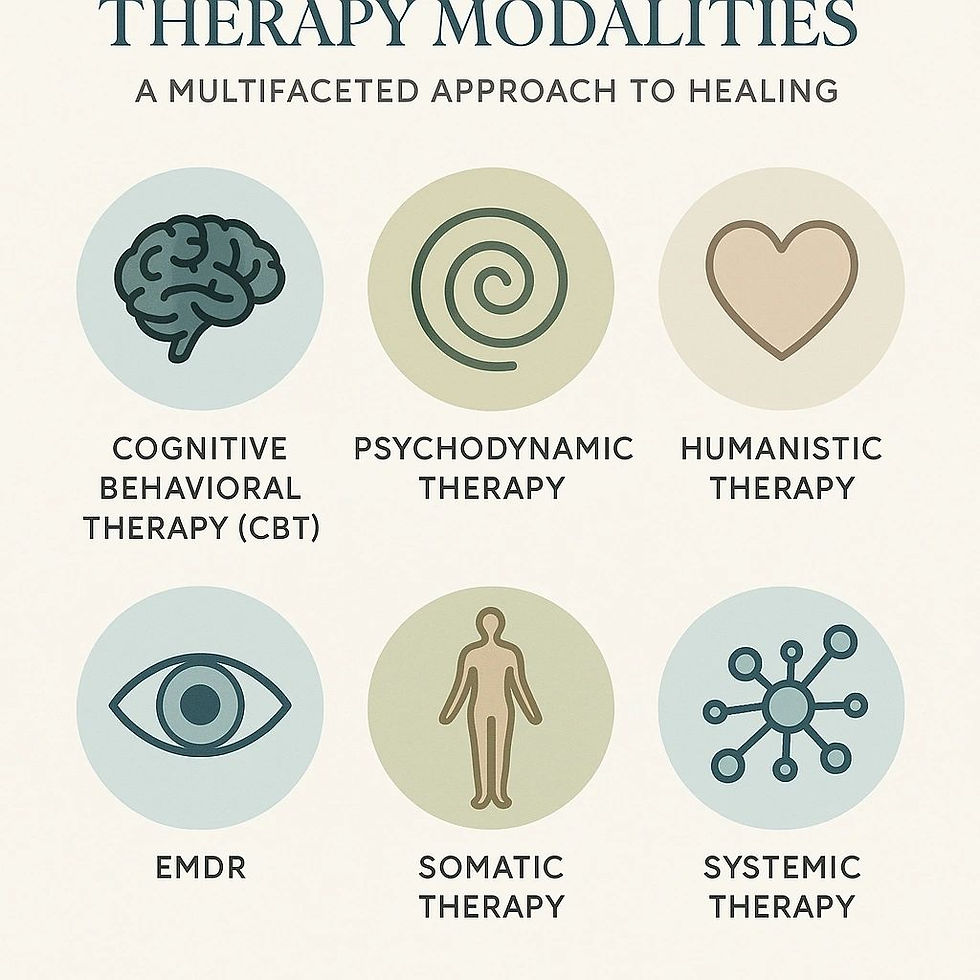How to Talk to Your Parents About Mental Health
- michelleluna
- Jul 16
- 4 min read

Opening up to your parents about your mental health can feel scary and overwhelming — especially if you’re unsure how they’ll respond. You may worry they won’t understand, won’t take it seriously, or will dismiss what you’re going through. But reaching out is a brave and important step toward getting the support you deserve.
Whether you're struggling with anxiety, depression, identity-related stress, or just feeling off lately, here’s a guide to help you prepare for this conversation and navigate it in a way that feels safe and true to you.
1. Know Why You Want to Talk
Before you start the conversation, take a moment to reflect on what you hope to get out of it. Are you seeking emotional support? Help finding a therapist? Just someone to listen without judgment? Getting clear on your intentions can help you stay grounded and focused when emotions are high.
You don’t need to have all the answers. It’s okay to say, “I’m not sure what I need, but I know I don’t want to feel like this anymore.”
2. Pick the Right Time and Place
Timing matters. Try to find a calm, private moment when your parents aren’t distracted, stressed, or in a rush. Avoid starting the conversation in the middle of a conflict or when emotions are already running high.
You might say something like:
“There’s something important I want to talk about. Do you have time to sit down with me later today?”
Choosing a neutral, safe setting—like your living room or going for a walk—can help reduce tension.
3. Plan What You Want to Say
It’s totally normal to feel nervous or unsure about how to start. Writing down your thoughts ahead of time or practicing with a trusted friend, counselor, or support group can help you feel more confident.
You could start with:
“I’ve been feeling really overwhelmed lately, and I think it’s affecting my mental health.”
“I’ve been struggling with anxiety/depression and wanted to talk to you about it.”
“I’m not okay, and I need some support.”
You don’t need to share everything at once. Start where you feel comfortable, and let the conversation unfold naturally.
4. Be Honest, But Gentle
You deserve to be heard, and your feelings are valid. Share what you’re going through in your own words. Use “I” statements to express yourself without sounding like you’re blaming or accusing, which can help keep the conversation open.
For example:
“I’ve been feeling really down lately, and it’s been hard to get out of bed.”
“I don’t always understand what’s happening, but I know I’ve been feeling really anxious.”
If you’re comfortable, you can also share how this has been affecting your daily life—school, relationships, sleep, eating habits, etc.
5. Be Prepared for a Range of Reactions
Some parents respond with empathy and concern right away. Others might react with confusion, denial, or even frustration—not because they don’t care, but because they may not understand mental health, or they might feel helpless.
Try to give them time to process. If they react negatively, it’s okay to say:
“I know this might be hard to hear, but I really need you to listen right now.”
Remember: their initial reaction doesn’t define the long-term outcome of the conversation.
6. Share Resources or Information
If your parents don’t know much about mental health, it can help to share simple resources that explain what you’re experiencing. This might be a website, a podcast episode, or a personal story from someone who’s been through something similar.
You could say:
“I found this article that explains what I’ve been feeling—can I share it with you?”
“This video really helped me understand what I’m going through. Maybe it could help you, too.”
This can take some of the pressure off you and help them learn in their own time.
7. Ask for Specific Support
Sometimes parents want to help but aren’t sure how. Letting them know what kind of support you’re looking for can make things clearer for everyone.
Examples:
“I think I need to talk to a therapist—can you help me find one?”
“It would help if you checked in on me more often.”
“I don’t need advice right now, just someone to listen.”
Even small acts of support—like giving you space or reminding you they’re there—can make a big difference.
8. Know It’s Okay to Seek Help Elsewhere
Not all parents will be able to offer the support you need, and that’s not your fault. If your parents aren’t ready or willing to help, know that you still have options.
There are trusted adults, teachers, school counselors, LGBTQ+ centers, mental health hotlines, and online communities that can provide the support and resources you deserve.
You can also consider writing them a letter or email if talking face-to-face feels too hard.
Final Thoughts: You Deserve Support
Talking to your parents about your mental health takes courage. Whether it’s a small step or a long conversation, every move you make toward asking for help is powerful. You are not weak for struggling. You are not a burden. You are doing your best in a world that can be hard to navigate—and you don’t have to do it alone.
No matter how the conversation goes, know this: you’re worthy of care, understanding, and support.








Comments